The Light That Belongs to Everyone
When the first diya flickers in the evening breeze, it does not ask who lights it.
It simply shines — spreading warmth, beauty and hope.
Every year, as Diwali approaches, the world glows with millions of lights, sweets are exchanged, prayers are offered and hearts brim with joy. But behind this grand festival lies a question many often ask — “Is Diwali only a Hindu festival?”
The answer is beautifully layered. While Diwali’s roots lie deep in Hindu mythology, its meaning and celebration transcend religious boundaries. Jains, Sikhs and Buddhists too observe Diwali in their own distinct yet spiritually connected ways. It’s one of those rare festivals that unites people through light, peace and renewal.
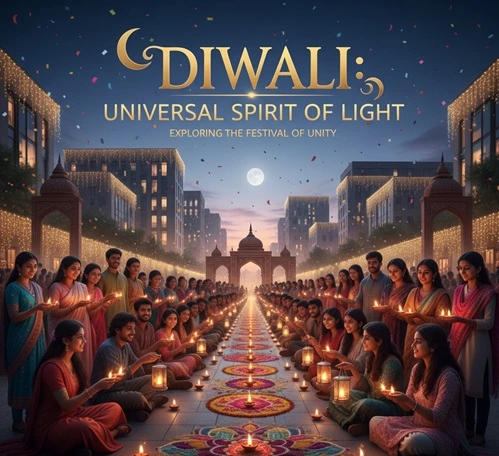
The Hindu Perspective: The Victory of Good Over Evil
For Hindus, Diwali marks several events — each significant in its own way, depending on the region and belief system. Yet, the central essence remains: light triumphs over darkness, knowledge over ignorance and good over evil.
The Return of Lord Rama
In northern India, Diwali celebrates the return of Lord Rama, his wife Sita and brother Lakshmana to Ayodhya after 14 years of exile and the victory over the demon king Ravana. The people of Ayodhya lit rows of oil lamps (diyas) to welcome them home — and thus began the tradition of illuminating homes during Diwali.
The Birth of Goddess Lakshmi
For others, Diwali is also the night of Goddess Lakshmi, the goddess of wealth and prosperity. People clean their homes, decorate them with rangoli and lamps and perform Lakshmi Puja, seeking blessings for abundance and happiness.
Lord Krishna and Narakasura
In southern India, the festival marks Lord Krishna’s victory over the demon Narakasura, symbolizing the triumph of righteousness and virtue.
Lord Vishnu and King Bali
In some regions, Diwali also commemorates Lord Vishnu sending King Bali to rule the netherworld, representing humility and divine justice.
Each of these stories shares a single underlying message — Diwali celebrates hope, renewal and the moral power of goodness.
The Jain Perspective: The Day of Spiritual Liberation
For followers of Jainism, Diwali holds a completely different yet equally profound meaning. It marks the Nirvana (spiritual liberation) of Lord Mahavira, the 24th Tirthankara, in 527 BCE.
According to Jain scriptures, Lord Mahavira attained moksha (liberation from the cycle of birth and death) on the night of Diwali at Pavapuri in Bihar. His chief disciple, Gautama Swami, also attained enlightenment that same night.
To honor this sacred event:
- Jain temples and homes are illuminated with diyas, symbolizing the light of spiritual knowledge that Mahavira spread.
- Devotees recite prayers, scriptures and hymns like the Uttaradhyayana Sutra, which contains Mahavira’s final teachings.
- It’s also a time for introspection, fasting and forgiveness.
For Jains, Diwali is not about material prosperity — it’s about the victory of the soul over desires, the light of truth and inner awakening.
The Sikh Perspective: The Day of Liberation and Gratitude
In Sikhism, Diwali is known as Bandi Chhor Divas — meaning “The Day of Liberation.” It commemorates a moment of immense courage and compassion in Sikh history.
During the reign of Mughal Emperor Jahangir, Guru Hargobind Sahib Ji, the sixth Sikh Guru, was imprisoned at the Gwalior Fort along with 52 Hindu kings. When the Emperor decided to release him, the Guru refused to leave unless all the other prisoners were also freed. Jahangir agreed, saying only those who could hold onto the Guru’s cloak could leave.
The Guru had a special cloak made with 52 tassels, each representing a king — and all of them walked out together.
When he returned to Amritsar, the Golden Temple was beautifully lit with lamps in his honor. Since then, Sikhs celebrate this day with immense devotion.
Today, on Diwali night:
- Gurudwaras across the world are decorated with lamps and lights.
- Special prayers (Kirtan Diwans) are held.
- The Golden Temple glows in breathtaking illumination, drawing thousands of devotees.
For Sikhs, this day is not about fireworks or wealth, but about freedom, compassion and gratitude — values that align beautifully with Diwali’s universal essence.
The Buddhist Perspective: The Path to Enlightenment
In Buddhism, Diwali has significance particularly among Newar Buddhists of Nepal, a community that blends ancient Hindu and Buddhist traditions.
They celebrate “Tihar,” the Nepali version of Diwali, over five days — each dedicated to different forms of life:
- Kukur Tihar – honoring dogs for their loyalty and friendship.
- Gai Tihar – worshipping cows as symbols of abundance.
- Laxmi Puja – inviting prosperity into homes.
- Govardhan Puja / Mha Puja – celebrating the self, the soul and the Earth.
- Bhai Tika – strengthening the bond between brothers and sisters.
Buddhists view Diwali as a time of inner reflection, purity and compassion — aligning with the teachings of the Buddha. It’s less about ritual and more about spreading light through love, peace and mindfulness.
Shared Symbolism Across Religions
Though each religion interprets Diwali differently, their underlying messages beautifully converge.
| Religion | Core Belief / Significance | Common Theme |
|---|---|---|
| Hinduism | Return of Rama, victory of good over evil, Lakshmi Puja | Light over darkness |
| Jainism | Lord Mahavira’s attainment of Nirvana | Liberation and knowledge |
| Sikhism | Guru Hargobind’s release and compassion | Freedom and humanity |
| Buddhism | Inner purification and gratitude (Tihar) | Peace and mindfulness |
At its core, Diwali is about enlightenment — whether it’s spiritual, moral or emotional.
The Modern, Shared Celebration
In today’s India and around the world, Diwali has evolved beyond religious lines. It has become a cultural celebration of togetherness, positivity and human connection.
- Families exchange gifts irrespective of faith.
- Communities organize light festivals to promote unity.
- Corporate offices and schools celebrate Diwali as a symbol of hope and renewal.
- Non-Hindus join in lighting diyas and sharing sweets, respecting its message of harmony.
In cities like Singapore, Fiji, Mauritius and the UK, Diwali is celebrated as a national festival, recognizing its universal values.
The Universal Message of Diwali
Whether you’re Hindu, Jain, Sikh, Buddhist or simply someone who believes in goodness — Diwali’s essence remains timeless:
- To light the lamp of wisdom within.
- To dispel the darkness of ignorance.
- To replace fear with faith, anger with forgiveness and despair with hope.
In an age where the world often feels divided, the simple act of lighting a diya becomes a reminder that light does not discriminate — it belongs to all.
Celebrating Diwali the Right Way
In embracing Diwali’s universality, it’s also vital to celebrate it responsibly and meaningfully:
- Choose eco-friendly diyas and decorations.
- Avoid excessive fireworks that harm the environment.
- Share your happiness with those less fortunate — donate clothes, food, or sweets.
- Teach children that Diwali is about compassion, not competition.
By focusing on the spirit rather than the spectacle, we return Diwali to its truest form — a festival of the soul.
Conclusion: The Light Beyond Religion
So, is Diwali only a Hindu festival?
The answer is — no.
It began in Hindu tradition, but over time, its light spread across faiths, philosophies and generations. Today, it stands as a universal symbol of hope, renewal and unity.
When diyas are lit across temples, gurudwaras, homes and monasteries — they collectively tell one story:
That darkness never wins for long.
That kindness is the truest wealth.
And that every light, no matter how small, adds to the brilliance of the world.
For more such Spirituality and Festival Updates, Follow Popnewsblend.com

Hi, I’m Prashant Jain — a curious soul, storyteller, and content creator at heart.I’ve always been drawn to the world of entertainment, travel, sports, health & lifestyle — not just as a writer, but as someone who genuinely lives these experiences. Whether I’m binge-watching the latest OTT series, exploring offbeat spiritual destinations in India, or diving deep into wellness routines and cricket match insights, I love sharing what I discover with like-minded readers.
PopNewsBlend is my way of blending personal journeys with meaningful stories — ones that inform, inspire, and keep you ahead of the curve. Everything I write comes from real observations, hands-on experiences, and a deep passion for understanding the world around us.
Discover more from Popnewsblend
Subscribe to get the latest posts sent to your email.

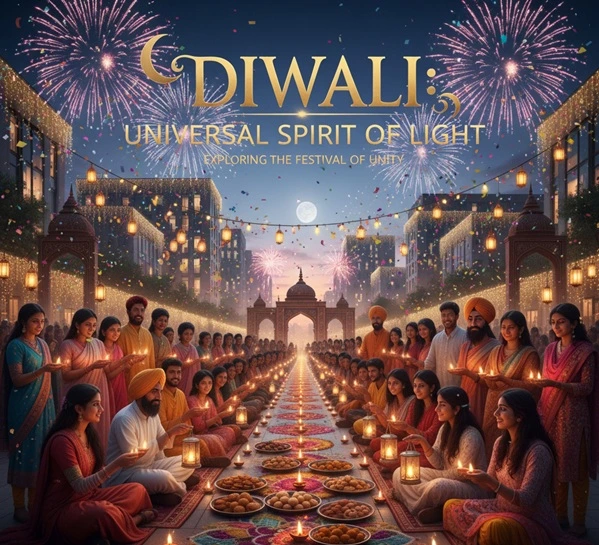
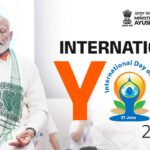
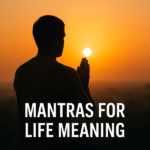

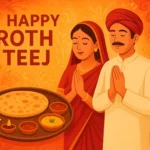
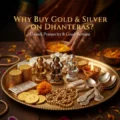

Pingback: Post-Diwali Detox: How to Get Back to a Healthy Routine After Sweets & Feasting
Your point of view caught my eye and was very interesting. Thanks. I have a question for you.
Your point of view caught my eye and was very interesting. Thanks. I have a question for you.